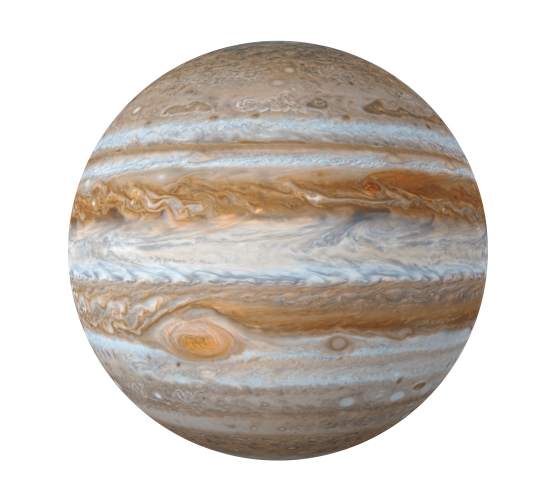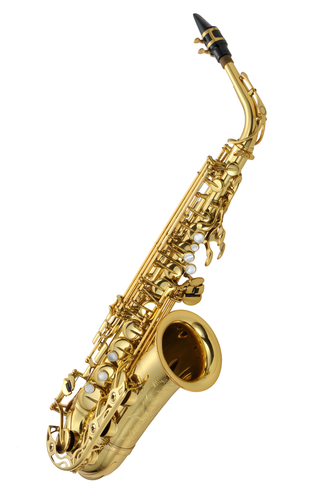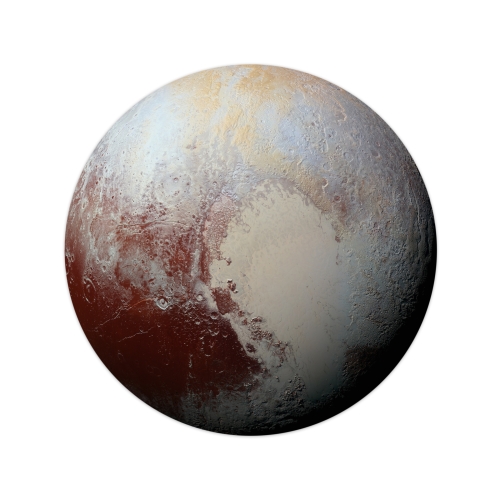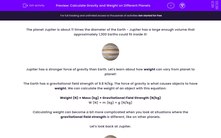The planet Jupiter is about 11 times the diameter of the Earth - Jupiter has a large enough volume that approximately 1,300 Earths could fit inside it!

Jupiter has a stronger force of gravity than Earth. Let's learn about how weight can vary from planet to planet!
The Earth has a gravitational field strength of 9.8 N/kg. The force of gravity is what causes objects to have weight. We can calculate the weight of an object with this equation:
Weight (N) = Mass (kg) × Gravitational Field Strength (N/kg)
W (N) = m (kg) × g (N/kg)
Calculating weight can become a bit more complicated when you look at situations where the gravitational field strength is different, like on other planets.
Let's look back at Jupiter.

The gravitational field strength of Jupiter is 24.7 N/kg. In other words, gravity on the surface of Jupiter would be about 2.4 times greater than the gravity we experience on Earth.
Example
How much would a 2.4 kg laptop weigh on Jupiter?
Answer
Weight (N) = 2.4 kg × 24.7 N/kg = 59.28 N
That same laptop would weigh 23.52 N on Earth. Remember, the mass of the object is constant because mass is a measure of how much material an object is made up of. The weight of an object depends on the gravitational field strength it experiences, so the weight of an object depends on where it is in space!
Mars is a smaller planet than the Earth. The diameter of Mars is about half the diameter of Earth, and the mass of Mars is only about 10% of the mass of the Earth. What do you think the gravitational field strength on Mars might be, compared to Earth?

The gravitational field strength on Mars is 3.71 N/kg. You might have predicted that the gravity on Mars would be less than the 9.8 N/kg we are used to!
Example
How much would a 4 kg box on Mars weigh?
Answer
Weight (N) = 4 kg × 3.71 N/kg = 14.84 N
That same box on Earth would weigh 39.2 N!
Now let's see if we can figure out the gravitational field strength of a planet, using the mass of an object and its weight!
We can rearrange the equation for weight to make gravitational field strength the subject. We do this by dividing both sides of the equation by mass.
Then the mass on the right-hand side cancels out, and we can re-write the equation like this:
Example
A saxophone has a mass of 3 kg. On a different planet, it has a weight of 1.86 N. What is the gravitational field strength of the planet?

Answer
g (N/kg) = 1.86 N ÷ 3 kg
g (N/kg) = 0.62 N/kg

That's the gravitational field strength of Pluto - a dwarf planet in our Solar System.
Now let's try some questions!









